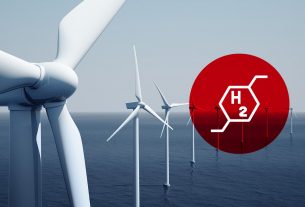DNV GL has launched an international industry consortium in collaboration with Dutch glass production company Celsian. Goal is to develop the technology required for a gradual transition from natural gas to hydrogen in energy-intensive industrial production processes.
A major challenge for energy-intensive industrial production processes is to make existing heating processes carbon-free. For example in the glass, food and ceramic sectors. Electrification is often not an option. A fast and sustainable route to reduce the carbon intensity for industrial heating processes is to substitute natural gas by hydrogen.
‘Existing hydrogen burner and burner control technology are not yet market-ready. Despite great interest and the advantages of hydrogen as a low carbon fuel in high-temperature industries. Our programme aims to have new burner concepts available within two years’, said Sander Gersen, project leader, DNV GL – Oil & Gas.
Value chain
The two-year programme is a collaboration in the introduction of hydrogen as a fuel for industrial use. Aiming to contribute fundamental improvements to existing industrial heating processes.
The industry consortium comprises more than 30 private and public partners throughout the hydrogen value chain. Including industrial end users, technology suppliers, fuel suppliers and traders, gas transport companies, knowledge institutes and the Dutch government.
‘We are looking at how we can best integrate new technology in industrial processes and hydrogen value chains. At the same time, we are gathering data and practical experience by conducting field demonstrations in various industrial environments.
Johan Knijp, country manager DNV GL – O&G Netherlands: ‘Right now, we are laying the foundation at DNV GL’s laboratories in Groningen. Subsequently, we will prepare for a field demonstration where the new technology is integrated into the industrial production processes of participating companies.’
Transition to hydrogen
Three important principles must be considered when switching from natural gas to hydrogen. Firstly, it is crucial that product quality is not affected. Therefore, in the first phase of the research strong emphasis is on understanding heat transfer from the hydrogen flame to the product. Secondly, security of supply during the transition is important. In other words: an end-user always wants to be able to switch back to natural gas. Finally, the solution should be relatively easy and cost-effective to integrate into existing installations.
The programme’s proposed solution builds on the fuel adaptive burner concept recently developed by DNV GL and burner system manufacturer Zantingh. Where a traditional burner is only suitable for 100% natural gas, the fuel transition adaptive burner can handle any mix of natural gas and hydrogen. An installation equipped with this new burner concept is prepared for any change in the natural gas/hydrogen mix. While maintaining safety, reliability and low emissions.




